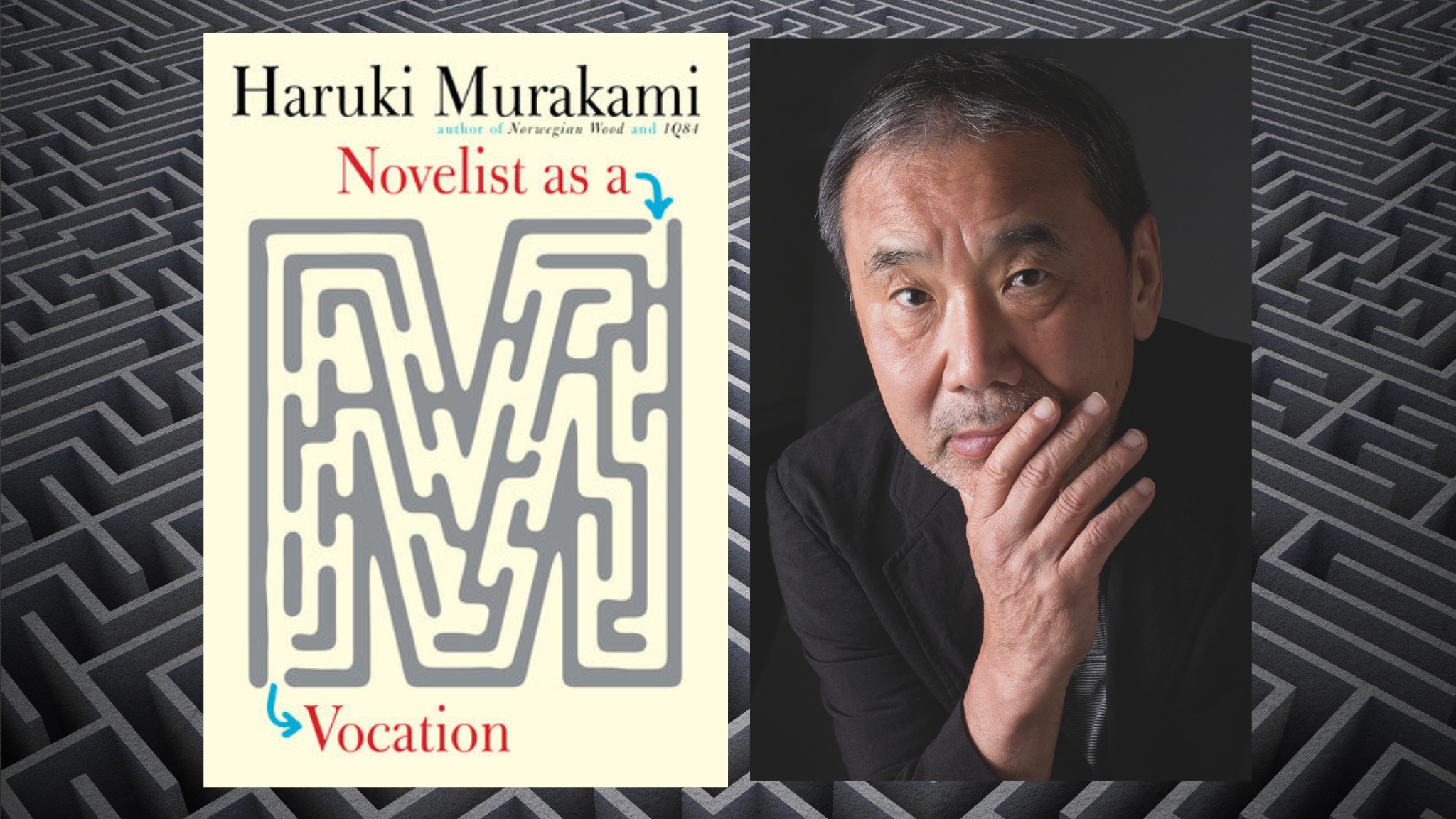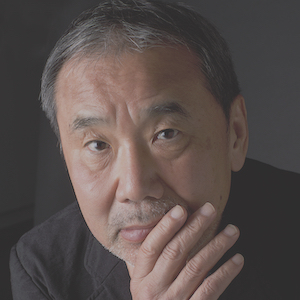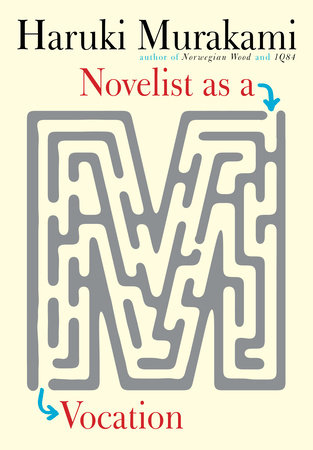
Novelist as a Vocation by Haruki Murakami
What’s it About?
An insightful look into the mind of master storyteller Haruki Murakami, providing a look at the craft of writing, creativity, the novel’s role in culture, loneliness, patience and routine.
In an autobiographical memoir of sorts entitled Novelist as a Vocation(Knopf), the wonderous author Haruki Murakami, as his fans might anticipate, shares his love for baseball and describes his experience as a young man sitting beyond the outfield fence smelling the grass, admiring the sparkling blue sky and sipping an ice-cold beer. Then he hears “the satisfying crack when bat met ball” as a batter slams a double.
Don’t ask us how, but the young man goes on to say, “In that instant, and based on no grounds whatsoever, it suddenly struck me: I think I can write a novel.”
His life was forever altered in that moment — he left the game and purchased a sheaf of writing paper and a fountain pen. And so began the career of the prolific novelist whose work has been translated into more than 50 languages and whose style features seemingly ordinary people placed in the most extraordinary of circumstances in surreal worlds.
Writing Novels is an “Uncool Enterprise”
Novelist as a Vocation, despite how the title might imply, is not a writer’s guide or simply a collection of essays but rather a glimpse into the mind of one of the most brilliant authors of the past half-century.
Murakami shares his thoughts on pretty much everything: how he writes, how he chooses what to write about, originality, managing his time, setting the right pace, the essence of his characters, calculating his audience, even his shunning of literary awards and diffusing a past controversy.
As his longtime readers would expect, Murakami is blunt. The 11 essays show the evolution of Murakami’s thinking, process, and career in what he hopes will go down as a comprehensive look of his views on writing novels.
“Writing novels is, to my way of thinking, basically a very uncool enterprise … Novelists sit cloistered in their rooms, intently fiddling with words, batting around one possibility after another. They may scratch their heads an entire day to improve the quality of a single line by a tiny bit … It may be that when the novel comes out, not a single reader will notice the improvement made that day.”
Murakami shares that pivotal moment in his life when he developed his trademark style and wrote his very first novel. We’re offered profound insight into the life of a young man who had no aspirations to be a novelist nor any training in the art of writing. With unvarnished honesty, we learn that a young Murakami, then the owner of a not-quite-struggling but not-quite-thriving jazz club, came up with the idea that he might want to write a novel.
From there, he spent months writing his novel at the kitchen table with no real aim for publication. It is here that Murakami found his voice, here that he refined the craft of storytelling, and here that he discovered a love for writing.
Perhaps it is the very fact that he wrote this initial story for no one but himself that he was able to find success.
On Craft, Creativity and Culture
Murakami muses on the mental and physical stamina necessary to be a novelist. Interestingly, Murakami views the two as equally important components to healthy writing. He claims that by nurturing his body through physical exercise, one is better able to build mental stamina.
Equally prescient is the observation that writing is largely a solitary undertaking, and physical activity offers a break to the monotony of the process.
Another moment that highlights Murakami’s particular brand of brilliance comes when he explains the peculiarities of writing in third person as opposed to first person, and how the transition from first person actually made him a better novelist.
This is more a book for readers than for writers. In fact, for those looking for a technical book on the intricacies of being a professional novelist or a play-by-play guide on how to improve your writing, this is not the book for you.
A Conversation with a Professional Novelist
However, for those seeking the opportunity to pick the brain of a professional novelist, to almost be in conversation with one, then look no further. Murakami’s intentionality, direct approach, and crisp prose all contribute to creating an impressive level of honesty and vulnerability. There undoubtedly are lessons to be learned in Murakami’s pages, but equally interesting is the chance to see how a brilliant mind works.
For Murakami, writing is a freedom, something that should be treasured and a process that should be enjoyed.
“I would like my readers to savor that same emotion when they read my books. I want to open a window in their souls and let the fresh air in. This is what I think of, and hope for, as I write — purely and simply.”
If you’re anything like me, your copy of this book will be riddled with underlined passages, phrases, and entire paragraphs as Murakami’s genius, wisdom and humor carry the day.
 About Haruki Murakami
About Haruki Murakami
Haruki Murakami was born in Kyoto, Japan, in 1949. His first novel, Hear the Wind Sing, won the Gunzou Literature Prize for budding writers in 1979. He followed this success with two sequels, Pinball, 1973 and A Wild Sheep Chase, which all together form “The Trilogy of the Rat.” Murakami is also the author of the novels Hard-Boiled Wonderland and the End of the World; Norwegian Wood; Dance Dance Dance; South of the Border, West of the Sun; The Wind-Up Bird Chronicle; Sputnik Sweetheart; Kafka on the Shore; After Dark; 1Q84; and Colorless Tsukuru Tazaki and His Years of Pilgrimage.
He has written three short story collections: The Elephant Vanishes, After the Quake and Blind Willow, Sleeping Woman; and an illustrated novella, The Strange Library. Additionally, Murakami has written several works of nonfiction. The most recent of his many international literary honors is the Jerusalem Prize, whose previous recipients include J. M. Coetzee, Milan Kundera, and V. S. Naipaul. Murakami’s work has been translated into more than 50 languages.

Publish Date: 11/8/2022
Genre: Biography, Memoir
Author: Haruki Murakami
Page Count: 224 pages
Publisher: Knopf
ISBN: 9780451494641
